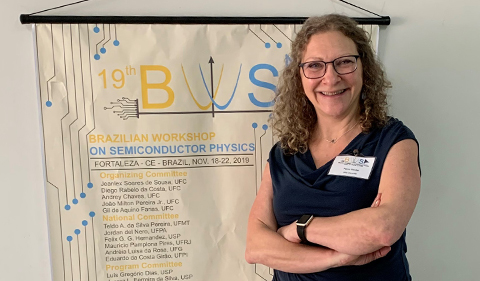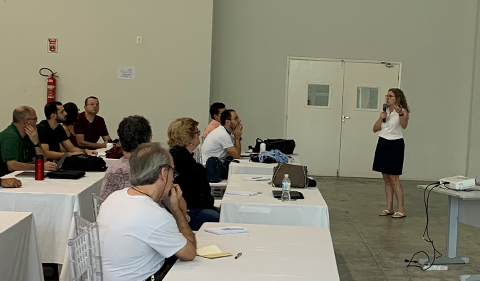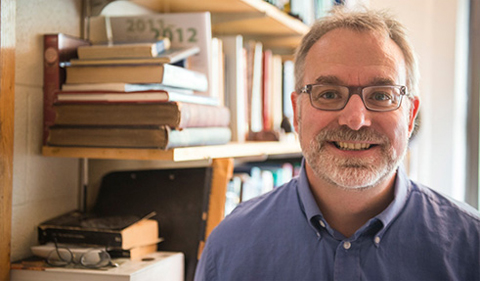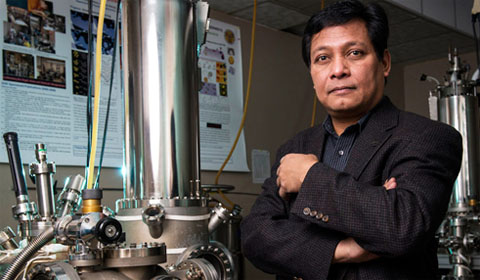Dr. Nancy Sandler was one of the few international invited speakers at the recent Brazilian Workshop for Semiconductor Physics 19, held at the Federal University of Ceará, in Fortaleza, Brazil.
Sandler is Professor of Physics & Astronomy at Ohio University. The biennial workshop, held since 1983, began as the premier Brazilian national scientific meeting to cover all aspects of semiconductor research and nowadays includes the most important topics in materials research.
The focus of this year’s meeting was on nanomaterials that exhibit exotic topological properties (a name inherited from the branch of mathematics used to describe them). Presentations also included research on spin manipulation, organic and molecular-hybrid semiconductors, and quantum computation.
Sandler’s presentation, titled “Deformed graphene membranes: from quantum dots to valley filters,” provided an overview of her research on the effects of mechanical strain on the electronic properties of a graphene membrane. She reported on the latest results from a study done in collaboration with her Brazilian colleagues Drs. Daiara Faria of Rio de Janeiro State University and Andrea Brito Latge of the Institute of Physics, Federal Fluminense University.
At the meeting, Sandler met with several students who expressed interest in visiting OHIO’s Athens campus to pursue research activities. “In my experience, students from Brazil have a top-notch academic preparation and are very driven to do scientific research,” Sandler said. “I thoroughly enjoyed working with them in the past and look forward to work with more of them in the future.”
The workshop included two tutorial and poster sessions and provided Sandler the opportunity to discuss new approaches for models of materials under non-equilibrium conditions with participants from Italy and Brazil. “This is an exciting new area with potential device applications,” she said. “Without any doubt, it is an ideal topic for graduate students’ research.”





















Comments